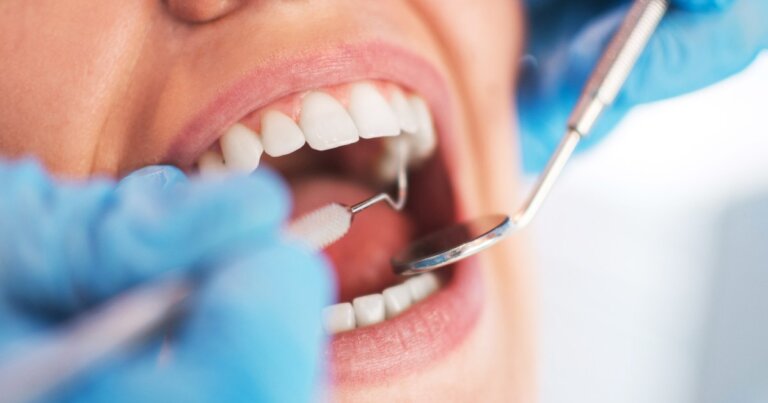Dental Cleaning

What Is Dental Cleaning?
Maintaining excellent oral hygiene is the cornerstone of a bright and healthy smile. One of the most important steps in preventive dental care is Dental Cleaning, also known as dental prophylaxis. This essential procedure removes plaque, tartar, and stains from your teeth, keeping your smile fresh and protecting your oral health. It also helps address early signs of gum disease and reduces the risk of cavities, bad breath, and other oral health issues.
Regular dental cleanings are typically recommended every six months, but some individuals may require more frequent visits depending on their oral health needs. At Atlas Dental, our skilled dental hygienists and dentists provide professional teeth cleaning services tailored to your needs.
Before booking a dental cleaning, there are some things you should know:
- Who Needs Dental Cleaning?
- Benefits Of Dental Cleaning
- How Much Does Dental Cleaning Cost?
- Steps In The Dental Cleaning Procedure
- Frequently Asked Questions About Dental Cleaning
If you have any further questions about Dental Cleaning or other dental services offered at Atlas Dental, please contact us.

Free phone consultation
Have questions about dental cleaning? Schedule a free phone consultation with our cosmetic dentist.

5 star google reviews
Our patients love us! See for yourself why more and more people are choosing Atlas Dental for dental cleaning.

BOOK DENTAL CLEANING ONLINE
Scheduling a dental cleaning in downtown Toronto has never been easier with our online booking system!
Who Needs Dental Cleaning?
Dental cleaning is essential for everyone, regardless of age or oral health condition. However, certain groups benefit significantly from routine cleanings:
- Children: Regular teeth cleaning helps children prevent cavities and establish lifelong oral hygiene habits.
- Adults: Even with diligent brushing and flossing, plaque and tartar can accumulate in hard-to-reach areas. Professional cleaning ensures a healthier smile and fresher breath.
- Seniors: Age-related issues such as gum recession and dry mouth make regular cleanings crucial for maintaining oral health in older adults.
- Individuals with Gum Disease: For those with gum disease, specialized cleaning techniques like scaling and root planing help manage and prevent disease progression.
- Smokers and Tobacco Users: Teeth cleaning removes stains and mitigates the effects of smoking, which include gum disease and bad breath.
Dental cleaning is essential for everyone. Regardless of age, oral health condition, or lifestyle habits, routine dental cleanings support optimal oral health, prevent dental problems, and contribute to a healthier smile. If you have further questions about Dental Cleaning, please contact us.
Benefits Of Dental Cleaning
Dental cleaning offers numerous advantages:
- Prevents Tooth Decay: Professional dental cleanings remove plaque, the leading cause of cavities.
- Fights Gum Disease: Regular teeth cleanings reduce the risk of gum disease, a common cause of tooth loss.
- Brightens Your Smile: Removes stains and tartar that brushing alone cannot address.
- Freshens Breath: Eliminates bacteria that contribute to bad breath.
- Improves Overall Health: Good oral hygiene reduces the risk of systemic health issues like cardiovascular disease and diabetes.
With regular dental cleaning, you can enjoy these advantages and maintain a healthy smile. It is important to consult with a dental professional to determine the recommended frequency of dental cleanings based on your individual needs. If you have further questions about benefits of Teeth Cleaning, please contact us.

Cost of Dental Cleaning
A typical dental cleaning is around 1 hour long, and will therefore cost $261. The codes relevant to teeth cleaning in the Ontario Dental Association’s Suggested Fee Guide appear as follows:
Scaling
- 11111 – One unit of time (15 minutes): $74
- 11112 – Two unit of time (30 minutes): $142
- 11113 – Three unit of time (45 minutes): $200
- 11114 – Four of time (60 minutes): $261
- 11115 – Five unit of time (75 minutes): $325
- 11116 – Six unit of time (90 minutes) $391
You may be offered additional services such as Polishing to remove extrinsic stains and Fluoride treatment to protect your teeth against future cavities:
Polishing
- 11101 – One unit of time (15 minutes): $36
- 11107 – Half unit of time (7.5 minutes): $29
Fluoride
- 12111 – Rinse: $9
- 12112 – Gel or Foam: $37
- 12113 – Varnish: $38
Dental cleanings are considered a basic service under all dental insurance plans and should be covered to your maximum insurable limit, but be sure to find out from your dental insurance plan provider how much you are eligible for before going ahead with dental treatment. Our fees are consistent with the ODA Fee Guide.
For patients without dental insurance, Atlas Dental is pleased to offer dental financing through iFinance Dentalcard. Affordable payment plans start at 7.95% for terms of 6 months to 6 years. To learn more about Dentalcard dental treatment financing, follow this link.
Steps In The Dental Cleaning Procedure
Here’s what to expect during your dental cleaning appointment:
Examination and Assessment: A thorough evaluation of your teeth and gums identifies any potential issues. X-rays may be taken if needed.
Plaque and Tartar Removal: Using manual and ultrasonic tools, the dental professional removes plaque and tartar buildup from all surfaces of your teeth.
Polishing: A polishing brush and paste are used to remove stains and leave your teeth smooth and shiny.
Fluoride Treatment (Optional): Fluoride strengthens enamel and helps prevent cavities.
Education: The dental professional provides personalized advice on maintaining good oral hygiene between visits.
Regular teeth cleaning appointments, typically recommended every six months, help maintain optimal oral health, prevent dental problems, and ensure a cleaner, healthier smile. If you have further questions about the Dental Cleaning procedure, please contact us.
Frequently Asked Questions About Dental Cleaning
- Does dental cleaning hurt?
Teeth cleaning is typically painless, but you may feel slight sensitivity if you have gum inflammation or tartar buildup. Let your dental professional know if you’re experiencing discomfort. Local anaesthetic can be administered to numb the discomfort.
- How long does a dental cleaning appointment take?
A standard cleaning usually takes about 30 to 60 minutes, depending on the level of plaque and tartar.
- Can I get dental cleaning during pregnancy?
Yes, teeth cleaning is safe during pregnancy and is especially important due to hormonal changes that can increase the risk of gum disease.
- How can I maintain clean teeth between appointments?
Brush twice daily with fluoride toothpaste, floss regularly, use an antimicrobial mouthwash, and avoid sugary foods and beverages. Please read our dental cleaning post-visit instructions.
Regular dental cleaning is key to preventing dental problems and maintaining a bright, confident smile. Whether you’re due for your next cleaning or have questions about our dental services, Atlas Dental is here to help. Contact us to schedule your next dental cleaning today!

